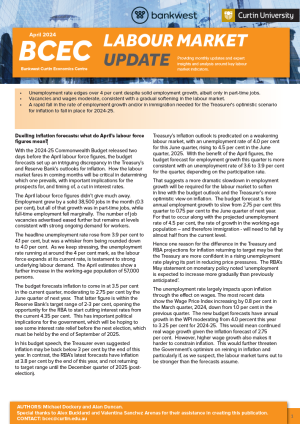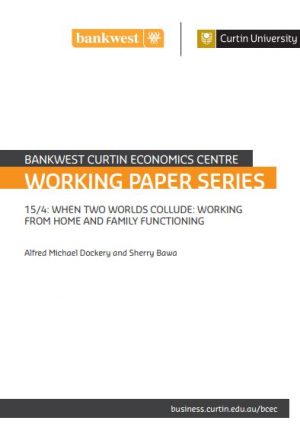When Two Worlds Collude
Whether or not working from home or ‘telecommuting’ helps workers to balance work and family commitments, as opposed to providing an avenue for work to intrude on family life remains a contentious issue. On balance it seems the flexibility to work some hours from home is a positive for workers. This was confirmed for a representative sample of Australian employees drawn from the Household, Income and Labour Dynamics in Australia Survey (HILDA) from 2001 to 2011, but with the reservation that working from home was associated with longer working hours and hence had the potential to exacerbate work-to-family conflict. A limitation of that study and much of the existing literature is that measures of work-family conflict have been based on subjective assessments by the workers themselves, who may be unlikely to reflect negatively on their own choice of work arrangements. In contrast, this study analyses the effect of employees working from home on their spouses’ and children’s assessments of family functioning in Australia using HILDA data from 2001-2013. Some evidence is found that working from home contributes to better relationships and a more equitable division of household responsibilities for couples with children. Limited evidence of negative externalities on other family members is observed, namely women whose employee-partners work a substantial number of hours from home are less satisfied with the division of tasks within the home. The findings therefore contribute to the weight of evidence that working from home is conducive to families achieving a better work-life balance.




